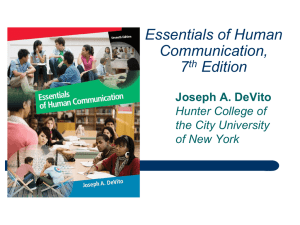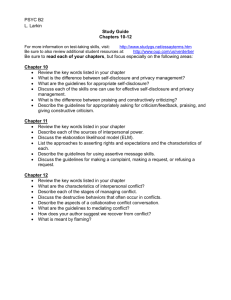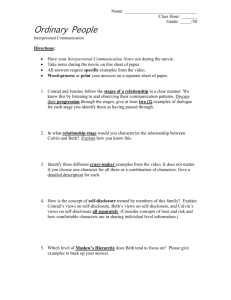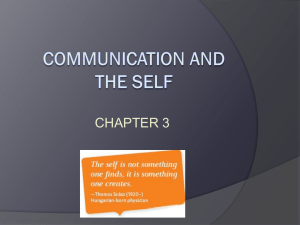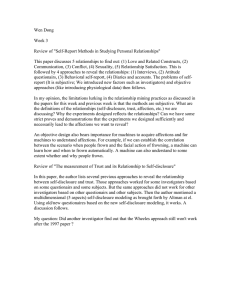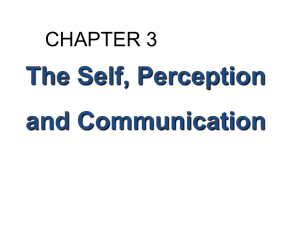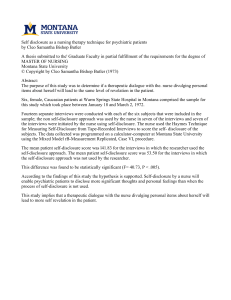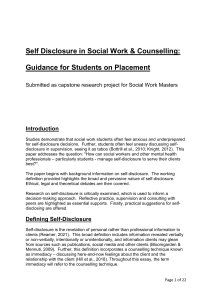Chapter Preparation Guide 6 Chapter 2 COMMUNICATION AND
advertisement
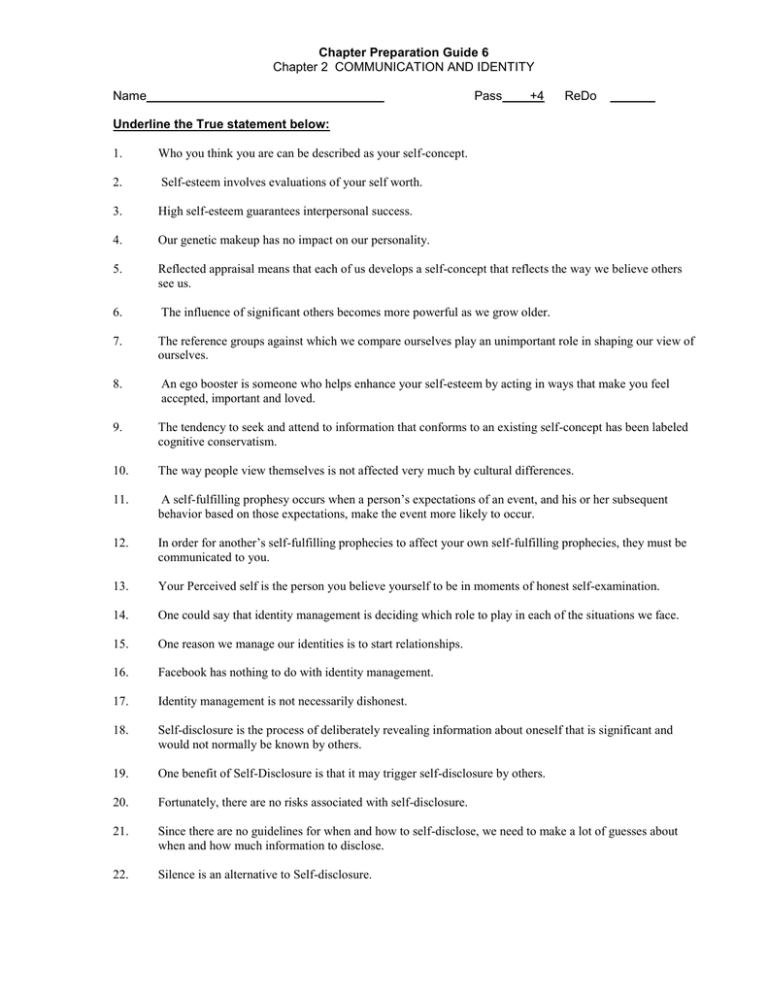
Chapter Preparation Guide 6 Chapter 2 COMMUNICATION AND IDENTITY Name Pass +4 ReDo Underline the True statement below: 1. Who you think you are can be described as your self-concept. 2. Self-esteem involves evaluations of your self worth. 3. High self-esteem guarantees interpersonal success. 4. Our genetic makeup has no impact on our personality. 5. Reflected appraisal means that each of us develops a self-concept that reflects the way we believe others see us. 6. The influence of significant others becomes more powerful as we grow older. 7. The reference groups against which we compare ourselves play an unimportant role in shaping our view of ourselves. 8. An ego booster is someone who helps enhance your self-esteem by acting in ways that make you feel accepted, important and loved. 9. The tendency to seek and attend to information that conforms to an existing self-concept has been labeled cognitive conservatism. 10. The way people view themselves is not affected very much by cultural differences. 11. A self-fulfilling prophesy occurs when a person’s expectations of an event, and his or her subsequent behavior based on those expectations, make the event more likely to occur. 12. In order for another’s self-fulfilling prophecies to affect your own self-fulfilling prophecies, they must be communicated to you. 13. Your Perceived self is the person you believe yourself to be in moments of honest self-examination. 14. One could say that identity management is deciding which role to play in each of the situations we face. 15. One reason we manage our identities is to start relationships. 16. Facebook has nothing to do with identity management. 17. Identity management is not necessarily dishonest. 18. Self-disclosure is the process of deliberately revealing information about oneself that is significant and would not normally be known by others. 19. One benefit of Self-Disclosure is that it may trigger self-disclosure by others. 20. Fortunately, there are no risks associated with self-disclosure. 21. Since there are no guidelines for when and how to self-disclose, we need to make a lot of guesses about when and how much information to disclose. 22. Silence is an alternative to Self-disclosure.
